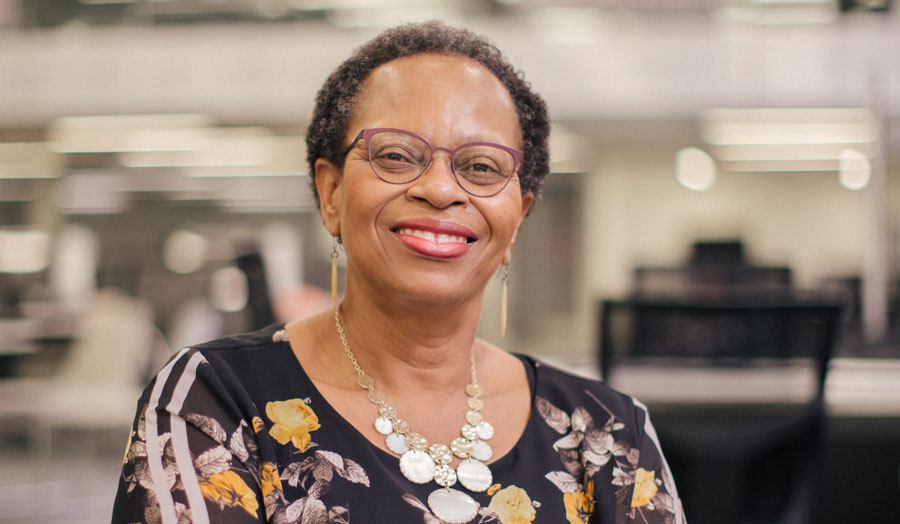Delivering a staffing base that reflects our students and our communities.
Despite the growth in student diversity in higher education, Black and minoritised academics remain missing in action. They struggle getting in and getting on, and studies have pointed to their ‘flight’ from the academy, driven out by a discriminatory and psychologically hostile culture. There are de minimis numbers in professorial and senior leadership roles across the UK.
Every institution is faced with this challenge and they must decide the appropriate course of action. At London Met we want to build an academic pipeline for future leadership of the institution, ensuring that the staffing base and decision-makers reflect the diversity of our students and the local communities we serve.
A generation missing in action
- Entry into academia is often prohibitively expensive due to the requirement for postgraduate qualifications and research experience. Our 2020 data suggests there are no young (those aged under 35) Black or minoritised early career academics at London Met.
- We will be launching a campaign to diversify our academic pipeline and will focus on early career academics including post-doctoral fellowships, developing an apprentice lectureship scheme, lecturer and senior lectureships as well as seeking to attract outstanding professors and senior managers.
Fair recruitment, selection and progression
We are working to implement the recommendations of the MacGregor-Smith Race in the Workplace Review (2017) including ensuring diverse interview panels and rejecting non-diverse shortlists.
In addition we will:
- Ensure all hiring managers and recruitment panel members have undertaken Inclusive Behaviours in addition to recruitment and selection panel training by June 2022 so that we end inequitable practices such as hiring in one’s image.
- Take positive action in order to deliver a representative workforce.
- Revise all future job descriptions to reflect our values and ensure that the criteria for all appointments speak to our ambition on race and desire to attract candidates with shared values and expertise on race.
- Use data to assess performance in departments and schools where disparities persist between application, shortlisting and appointment.
- Also use data to identify and respond to trends that suggest that workloads and development opportunities are not being allocated equitably.
- Develop a series of standard interview questions and scenarios that will assess candidates’ capability to work in a multicultural organisation.
- Provide career-enhancing development opportunities for Black and minoritised staff, that redresses institutional imbalances and inequities.
Targets
- Reflecting the London population benchmark, at least 55% of all early career academic staff and senior academic staff respectively, to come from Black and minoritised backgrounds by January 2025.
- 55% of Senior Managers to come from Black and minoritised backgrounds by January 2025.

"Education on all matters pertaining to race is a continuous process. Staff and students should have a sense of belonging and trust that their views and voices will be heard and valued. They must be convinced that decisions made are fair and equitable and not tokenistic.
"Equality of opportunity should be experienced by all. Conversations about race, discrimination and microaggressions need to be voiced. Staff and students should not be marginalised because of accents, heritage languages and preconceived notions of ethnicity and class. It is time that the narrative of racism be changed and words become action."
Janet Douglas Gardner – Associate Professor and Chair of the Black, Asian and Minority Ethnic Voices Staff Network
